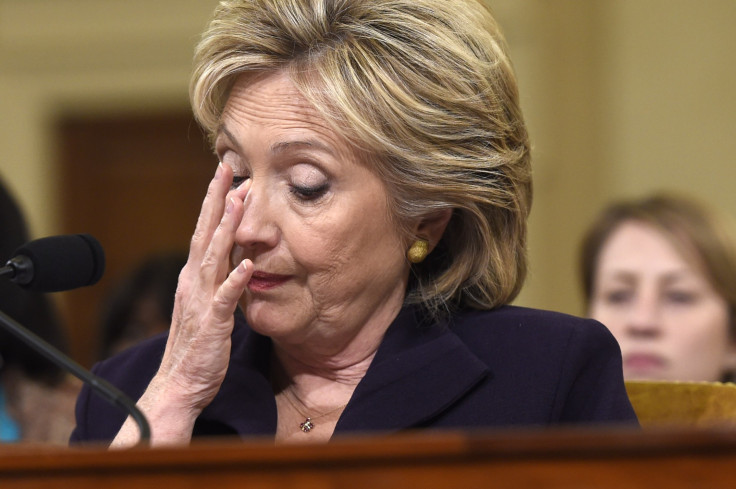Hillary Clinton Emails: Federal Judge Blocks Access To Redacted Emails Citing No Evidence Of Government Wrongdoing

Judicial Watch, a conservative group attempting to get access to State Department records related to Hillary Clinton’s email scandal, was denied permission on Tuesday after a federal judge ruled that the documents don’t indicate any evidence of government “malfeasance.”
The judgment concluding that none of the redacted emails suggested any “hints of nefarious government action or motive in responding to that conduct,” came in response to a lawsuit by Judicial Watch on May 6, 2015, after it made a Freedom of Information Act request on March 17, 2015.
U.S. District Judge James E. Boasberg, who himself reviewed the 30 disputed records, wrote: “the Court….concludes that Judicial Watch has not provided a sufficient basis to believe that the information withheld by the State Department would shed light on any government misconduct.”
Details about internal government documents are usually exempt from declassification under the FOIA, but Judicial Watch said that the records were proof of alleged wrongdoing.
“We remain curious about the documents…the PR effort remains troubling and something that we think is in the public’s interest to know,” Judicial Watch president Tom Fitton said, adding that his group is “evaluating the opinion and considering” moving on with an appeal.
News about Clinton’s email scandal was considered by many to be the tipping point that eventually gave Donald Trump the leverage in last year’s presidential race. Former Clinton campaign chairman John Podesta, for instance, said Monday that “forces within the FBI” worked against Clinton during a taped NewCo. Shift discussion with John Heilemann.
He was referencing the “bad judgment” of FBI Director James Comey, who notified Congress 11 days before the election that the FBI was revisiting its previous investigation into the private email server Clinton used while she was the secretary of State.
“[He] ended up dropping this bombshell in the middle of the election against the advice of the Justice Department, against the long-term practice of Democratic and Republican administrations…I’m not sure they really understood the alternative, but they wanted her to lose. I think that’s one possibility,” Podesta said.
Explaining another possible reason for Clinton’s loss, the Vox video embedded below uses a Gallup report to suggest that news regarding the Clinton email scandal overwhelmingly dominated what American voters had read, seen or heard about the two candidates. In comparison, it suggests that the damning coverage around Trump was more scattered because of how media was operating during the election.
© Copyright IBTimes 2025. All rights reserved.






















